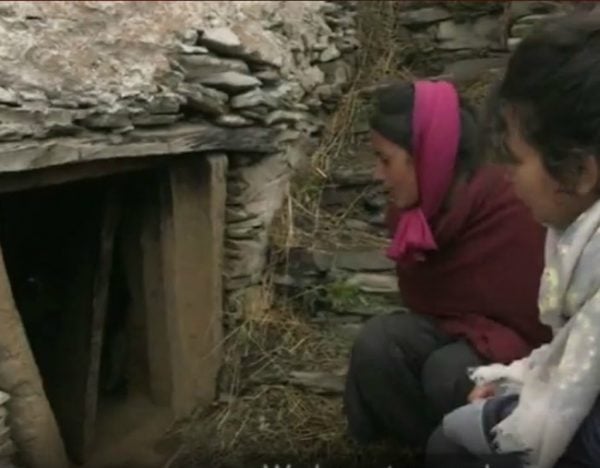It was winter in Nepal, and 15-year-old Roshani Tiruwa was spending the night by herself in an animal shed. She hadn’t done anything wrong. She was just having her period.
In rural areas of western Nepal, many families follow the centuries-old practice of banishing girls and women from the home when they’re menstruating because they’re believed to be “impure”.
Tiruwa was trying to keep warm. She lit a fire inside the mud-and-stone hut, but it had no chimney or any other ventilation. She died from smoke inhalation. In the morning, her father found her body.
Tiruwa was the second girl to die within a four-week period last year due to the practice, which is known as chhaupadi.
This year, there have been more victims. Lalsara Bika, 14, died from a cold-related illness she picked up while sleeping in an animal shed. Tulasi Shahi, 19, died when she was bitten on the head and leg by a poisonous snake.
Other young women have been raped or abducted by men taking advantage of their vulnerability.
As well as being forced to sleep in huts, girls and women having their period have to do outdoor labour during the day. They’re restricted in who they can mix with, and only given limited food. Many are also banned from reading and writing. Most of them report feeling lonely and scared.
“I feel horrible here – the cow dung smells and the animals step on us,” Sofalta Rokaya, 16, told The Guardian. “The dirt and hay get stuck all over my body.”


Top Comments
Our new mums get pampered and isn't allowed out or to lift a finger for a whole month. Other female family members will see to all her needs. Her only job is to feed her newborn. It is called confinement. I thought it was a rather restrictive and ott tradition, but I won't be complaining anymore. These poor women and their newborn in Nepal! So sad.
Poor babies, just born and kept in cow dung!